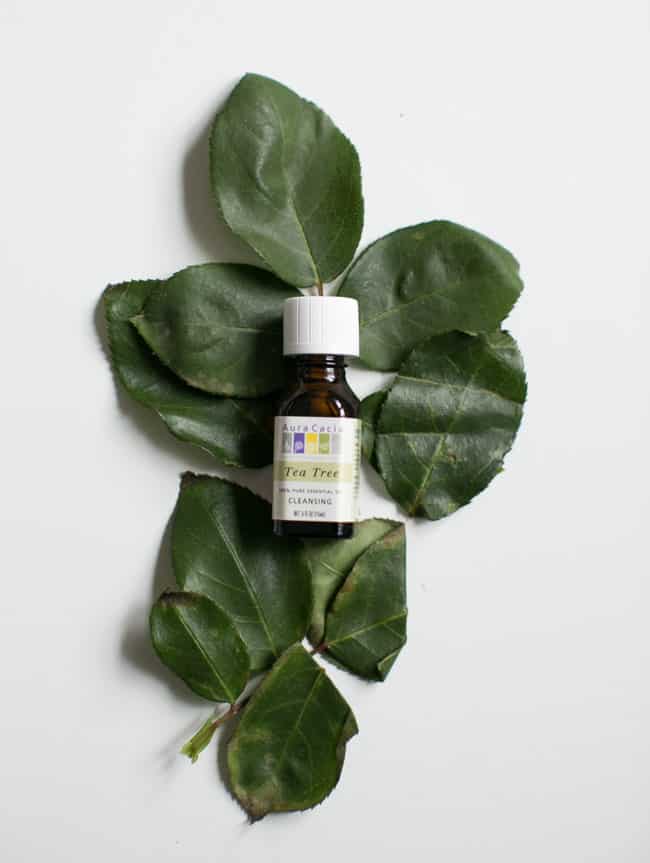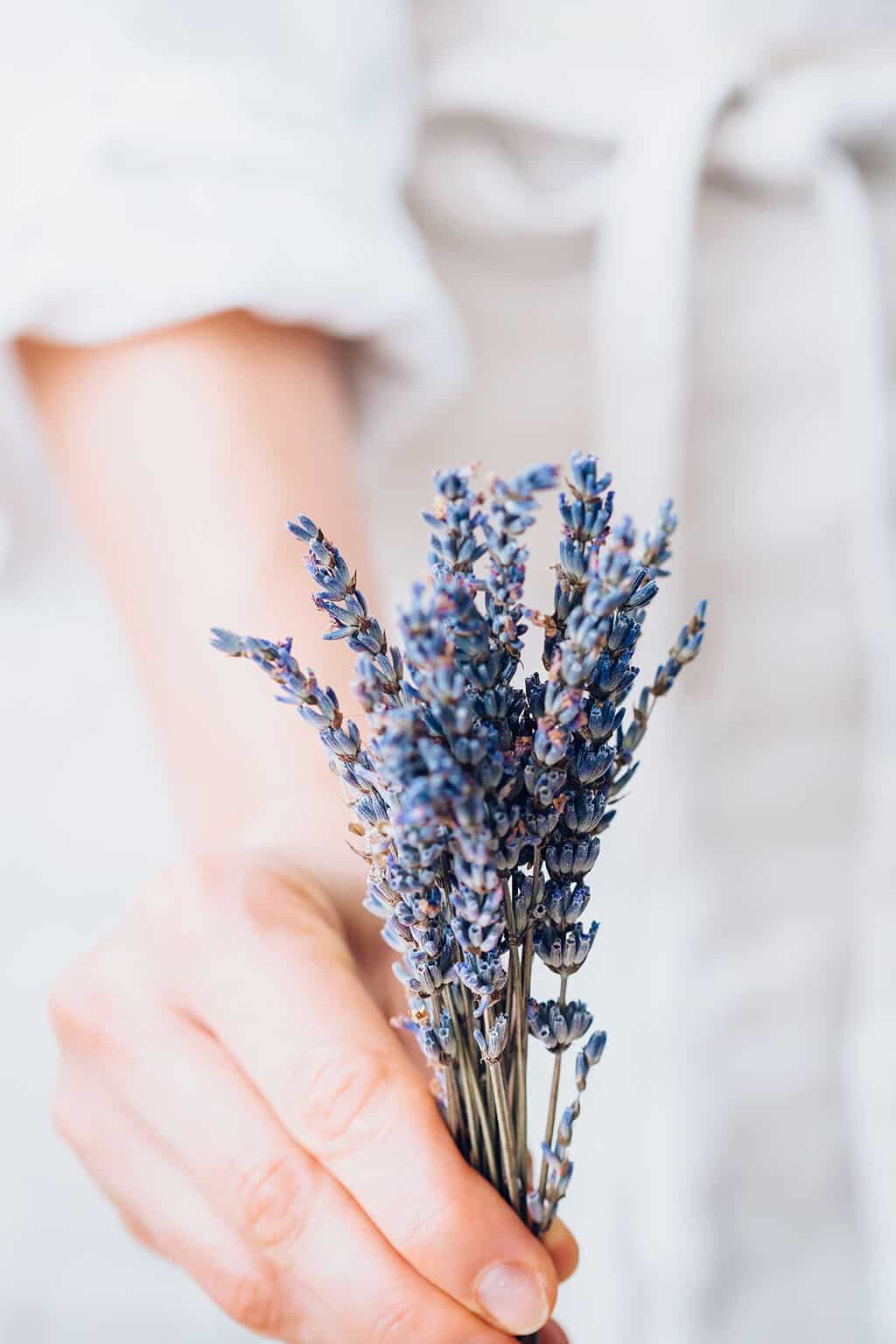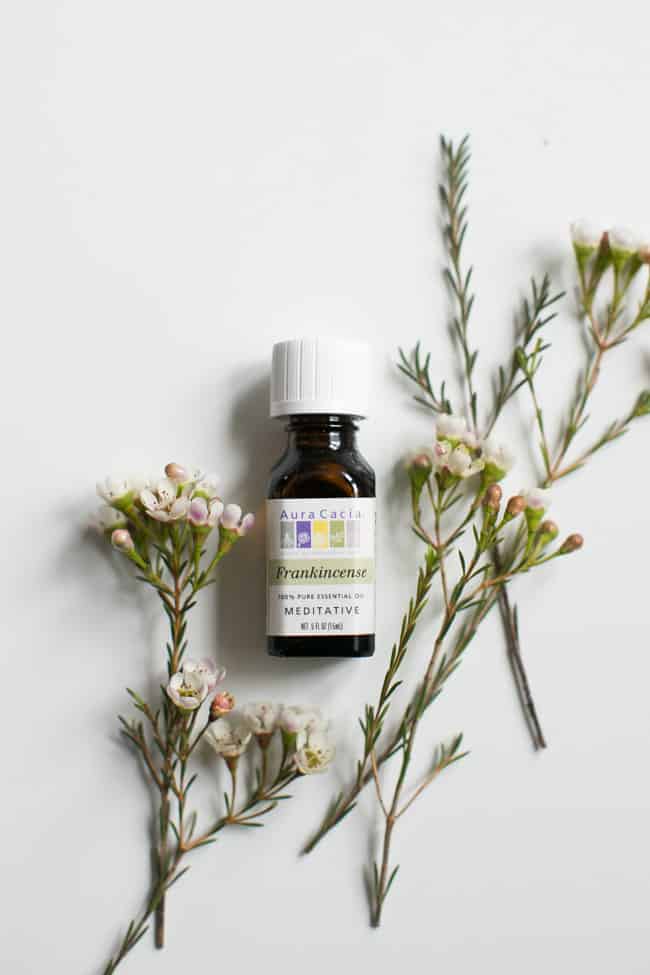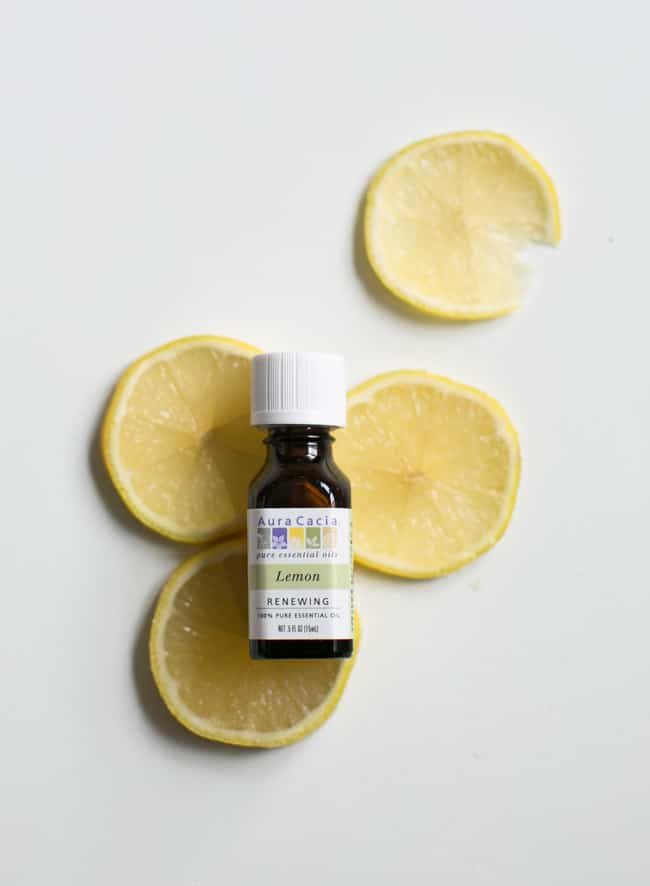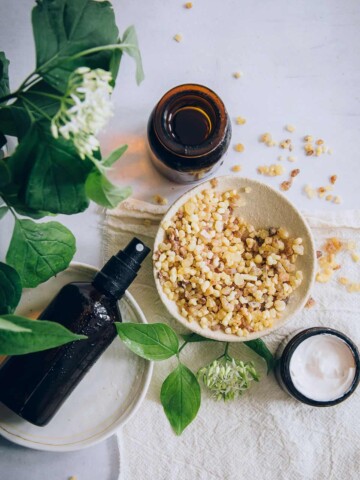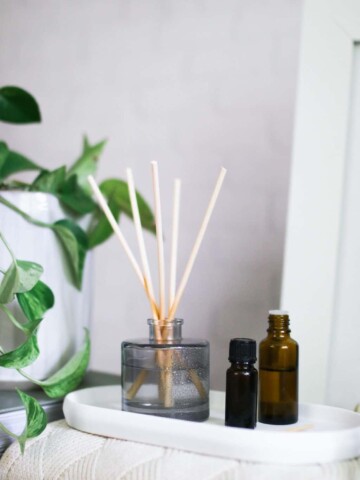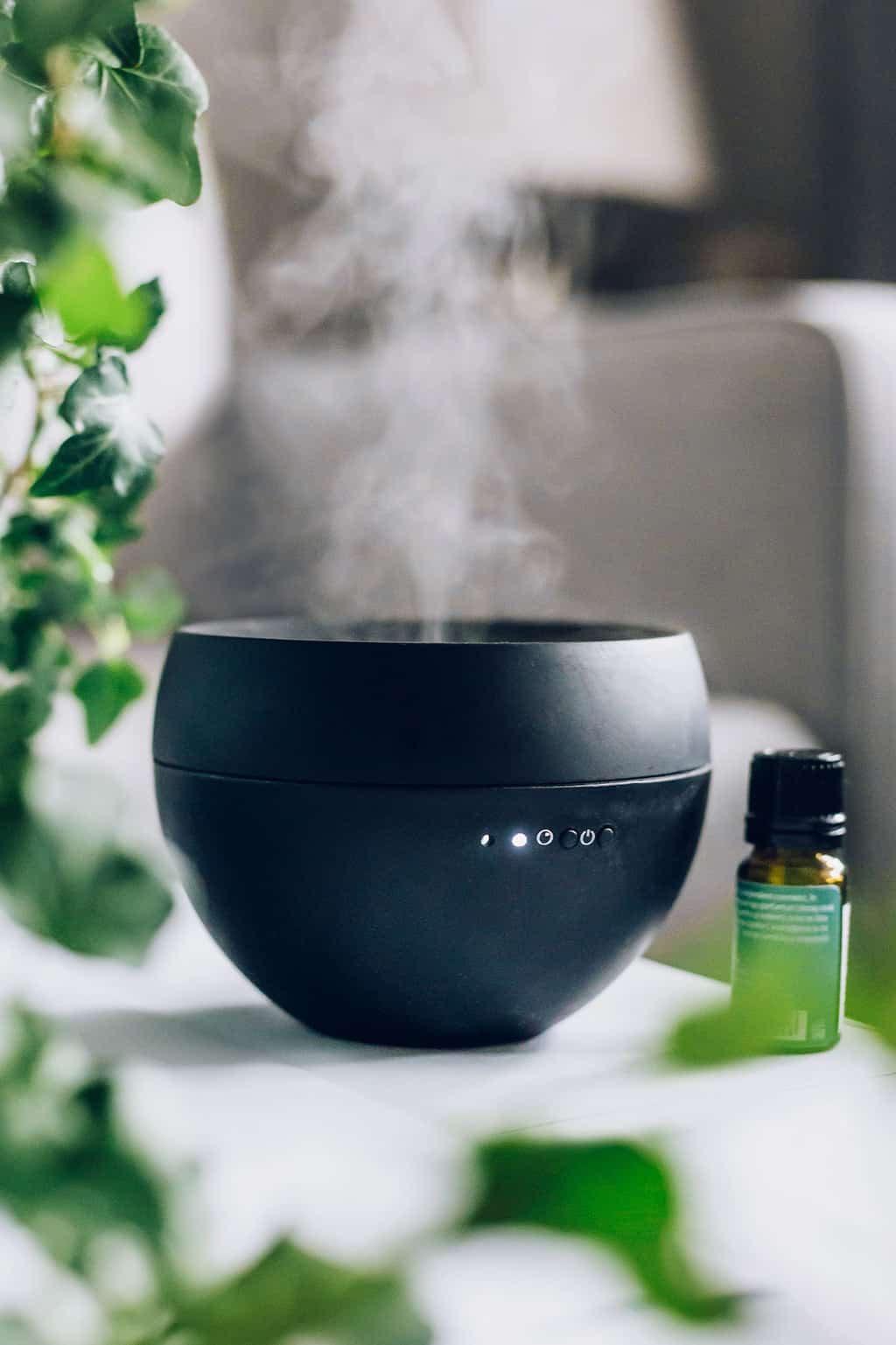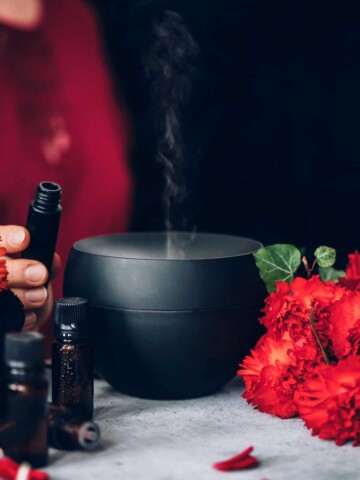The benefits of aromatherapy seem never-ending. These little aromatic liquids can help you feel soothed and calm or energized and uplifted. In the past, we’ve talked a lot about essential oils—everything from purifying and cleaning to skin care and mind-body support. Is there anything essential oils can’t do?
We’re big fans of incorporating the benefits of aromatherapy into everyday life; it’s time to make them part of your daily routines. Here are the six essential oils I can’t live without and my at-home methods for using them.
6 Best Essential Oils for Everyday Use
1. Peppermint
Peppermint is a must-have for relieving feelings of tension that come on when you’re overwhelmed or have been staring at the computer for too long. When diluted and applied topically, peppermint leaves a cooling sensation on the skin that is oh-so-pleasant for headaches or tense muscles.
Not only is the brisk, invigorating aroma refreshing, but peppermint contains a menthol constituent with calming effects [source] that’s also beneficial when you’ve got a stuffy nose or congestion [source].
Peppermint uses:
Give yourself a quick head massage to ease tension. Combine 5 drops of peppermint with a tablespoon of carrier oil like coconut or almond, and massage into the temples and the base of your neck.
You can also make a larger batch of massage oil by adding 15 to 20 drops diluted into ½ cup of carrier oil. It’s particularly lovely when used for a massage on your feet, too!
Just make sure to avoid using peppermint around infants and young children.
2. Tea Tree
For my frustrating blemishes, I turn to tea tree oil; it’s a great alternative to chemical-based cleansers that can be harsh on the skin. Tea tree is unique in that, even though it packs a powerful antimicrobial punch—antiviral, antibacterial, and antifungal [source]—it’s gentle enough when diluted to be used on the skin [source].
Not only is it effective on skin imperfections, but tea tree oil can also be used on the rest of your body and to purify your environment.
Tea tree uses:
You can add a drop of tea tree essential oil to your favorite facial cleanser or simply keep this natural roll-on on hand.
Tea tree is a handy weapon in homemade cleaning recipes, too. It purifies your space and keeps unwanted elements at bay when used in everything from homemade wipes to bathroom cleaners to daily shower spray.
3. Lavender
Lavender is my go-to when I need to unwind—a need that is usually at its peak when I get off work or around bedtime. The calming aroma makes it an excellent companion any time you’re feeling frazzled or at the end of the day.
A number of scientific studies have found that lavender can be beneficial for feelings of stress and anxiety [source]. Personally, I’m never without a bottle of lavender!
Lavender uses:
Help the whole family wind down faster with a relaxing bedroom essential oil air freshener. Kids love spritzing them! Use lavender on its own, or add vanilla essential oil, and use the mixture each night to signal your brain that it’s time to prepare for sleep. Combine that with a Sweet Dreams foot massage for an even more relaxing pre-bedtime routine.
4. Frankincense
Frankincense helps me feel grounded when I’m anything but… It is one of the most precious ancient oils, and many find frankincense to be calming and relaxing. Although human studies are lacking, some research on animals suggests that frankincense oil may be beneficial for mitigating anxiety and stress [source]. Additionally, the fact that it contains anti-inflammatory properties [source] means it’s often used in face creams.
Frankincense uses:
Warm water opens the pores and creates an aromatic steam, both of which help deliver essential oil benefits. Add 6 drops of essential oil for every tablespoon of carrier oil—I like jojoba—to create a soothing bath oil. You can also add a drop of frankincense to your moisturizer or diffuse it aromatically to help boost your mood.
5. Eucalyptus
Eucalyptus is a popular ingredient in chest balms and muscle massage oils. Its main constituent 1,8-cineole [source] gives it the medicinal aroma that we find so soothing when dealing with congestion. It’s also my favorite essential oil to use for cold sores! Try adding it to this lip balm.
Eucalyptus uses:
Use it to make your own steam inhalation remedy. Add 1–2 drops of oil to a sink or large bowl full of hot water. Close your eyes and inhale deeply; you can drape a towel over your head to trap the steam. I use this for a stuffy nose and sinuses.
Or simply diffuse a few drops in a room with a simple reed diffuser, or buy a diffuser like this one that covers a larger area. You can also add 2–3 drops to a humidifier or even a pot of water on the stove (with the stove turned off).
Just make sure to avoid using eucalyptus around infants and young children.
6. Lemon
Loved for its fresh, clean aroma, lemon essential oil is a powerhouse in homemade cleaning recipes. A naturally purifying oil due to its antimicrobial properties [source], lemon is commonly used to degrease stubborn stains as well as freshen the air. Additionally, I enjoy using lemon essential oil in my energizing and mood-boosting diffuser blends.
Lemon uses:
Use it to deodorize your fridge, clean the floor, or combine 10 drops with ½ cup olive oil for a natural wood or leather polish. Just make sure to spot-test a small area of your workspace first.
What’s your favorite essential oil? How do you incorporate it into your daily life?
This article was medically reviewed by Dr. Gina Jansheski, a licensed, board-certified physician who has been practicing for more than 20 years. Learn more about Hello Glow's medical reviewers here. As always, this is not personal medical advice and we recommend that you talk with your doctor.
98

